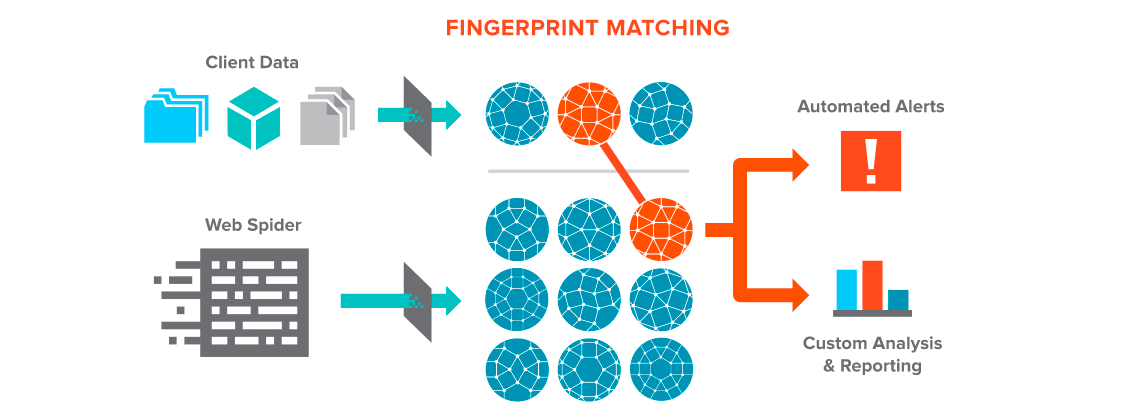To Danny Rogers, the recent spate of high-profile hacks that have hit giant healthcare companies like Anthem and financial firms like JPMorgan Chase and even the U.S. government all share one characteristic: They could have been detected sooner.
Rogers and fellow Johns Hopkins Applied Physics Lab (APL) alum Michael Moore saw law enforcement and intrepid journalists (like the renowned cybersecurity reporter Brian Krebs) finding out about hacks before the companies themselves. And usually, Krebs and police (sometimes in that order) don’t come in until a few weeks later.
With Matchlight, a software platform that came out of stealth mode in June, Rogers, Moore and their startup Terbium Labs are looking to help companies cut the time it takes to find out their data was stolen.
Rogers acknowledges that this requires companies to abandon a certain assumption.
“You can no longer assume that you’re not going to get breached,” the former APL program manager said. “No matter what you throw at it, you have to understand that your data is still at risk.”
In place of the human trackers, the program sends out automated “crawlers” that scour the dark web and other digital spots where stolen data often ends up getting traded, Rogers said. A “data fingerprint” is attached to the potentially sensitive information. That’s used to keep tabs on the data, and means that the company doesn’t have to specifically know what’s in the stolen package to find it.
Matchlight can “search on behalf of clients without understanding what the data is,” Rogers said.
While the product is still fresh out of stealth mode, the company is looking to sign enterprise clients to use the program. He thinks it can be particularly effective in the financial and healthcare sectors, which have been targeted for big hacks recently. When he shows the product to potential clients, Rogers says he’s already hearing feedback that “no one else can do that at this point.” Investors have also shown interest, as the company recently raised more than $3.5 million, according to SEC filings.
The eight-person company is currently based out of offices in the Sharp-Leadenhall neighborhood of South Baltimore. Rogers expects the company to grow to 10 employees in the near future.
Asked about the decision to base the company in Baltimore, Rogers cited the strong cybersecurity talent pool in the area, as well as the relatively affordable real estate with proximity to New York and D.C.
“Baltimore is a great city to do this,” he said.
Before you go...
Please consider supporting Technical.ly to keep our independent journalism strong. Unlike most business-focused media outlets, we don’t have a paywall. Instead, we count on your personal and organizational support.
3 ways to support our work:- Contribute to the Journalism Fund. Charitable giving ensures our information remains free and accessible for residents to discover workforce programs and entrepreneurship pathways. This includes philanthropic grants and individual tax-deductible donations from readers like you.
- Use our Preferred Partners. Our directory of vetted providers offers high-quality recommendations for services our readers need, and each referral supports our journalism.
- Use our services. If you need entrepreneurs and tech leaders to buy your services, are seeking technologists to hire or want more professionals to know about your ecosystem, Technical.ly has the biggest and most engaged audience in the mid-Atlantic. We help companies tell their stories and answer big questions to meet and serve our community.
Join our growing Slack community
Join 5,000 tech professionals and entrepreneurs in our community Slack today!

The person charged in the UnitedHealthcare CEO shooting had a ton of tech connections

From rejection to innovation: How I built a tool to beat AI hiring algorithms at their own game

Where are the country’s most vibrant tech and startup communities?



